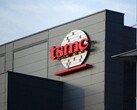Taiwan’s Ministry of Economic Affairs has lifted the ban that once kept TSMC from making 2-nanometer chips at its overseas plants. This policy change marks a big break from older regulations that insisted on keeping foreign production at least two generations behind what was happening at home.
“Those were old-time rules. Times have changed,” said Minister of Economic Affairs J.W. Kuo at a media briefing. “Private businesses should make their own business decisions based on their own technological progress.”
This move goes hand in hand with TSMC’s expansion in Arizona, where the total investment could go over $65 billion. The company’s second fab there is supposed to start rolling out 2nm and 3nm chips by 2028, following the first facility’s 4nm production, which is set to begin in early 2025.
TSMC’s third Arizona facility, slated for completion before the end of the decade, will target 2nm or more advanced processes. Even though the new rules are in place, Minister Kuo said TSMC will be cautious about investing the massive $28 to $30 billion it takes to build a 2nm facility.
This policy shift is part of Taiwan’s bigger goal to shore up the global chip supply chain. Next year, the Ministry of Economic Affairs is focusing on partnerships with the United States, Germany, Japan, and the Philippines. They also plan to set up an office in Fukuoka, Japan, to support semiconductor-related companies near TSMC’s upcoming Kumamoto site.
This shift comes as Taiwan revises its “Silicon Shield” strategy, which initially kept the country’s cutting-edge chip production strictly domestic to preserve a technological edge. The government acknowledges how the semiconductor scene is changing, especially with 60 percent of the world’s chip design firms being based in the U.S.
Source(s)
Taipei Times (in English)

























